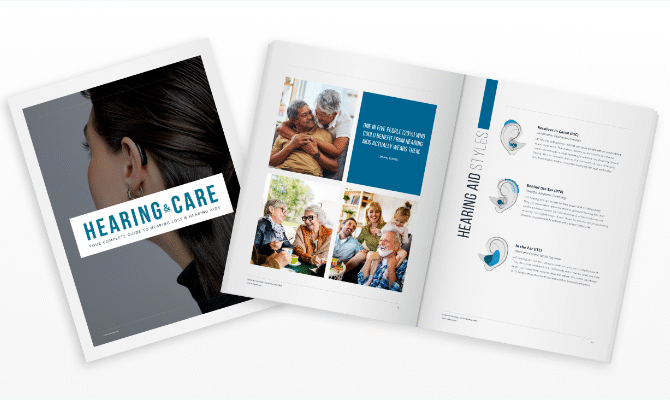Loud Noise Exposure Could Lead to Hearing Loss Years Later
The sources of loud noise are everywhere – from movie theaters to concerts to the earbuds that seem to be permanently lodged in young people’s ears. And just as sun exposure accumulates over time and can eventually lead to skin cancer, noise exposure can lead to hearing loss years or decades later.

Many electronic devices – including smartphones – can harm your hearing over time due to exposure to high decibels, the unit used to measure sound. A whisper is 30 decibels, a normal conversation 60 decibels. Prolonged exposure to anything above 85 decibels – the maximum volume for many phones – is considered damaging. As a general rule, try to listen to your device at no more than 60 percent of its maximum volume for no more than 60 minutes a day.
The National Institute on Deafness and Other Communication Disorders (NIDCD) decibel levels for different sounds include:
- 30: Whisper
- 60: Normal conversation
- 90: Motorcycle
- 105: MP3 player maximum
- 120: Ambulance siren
Recently, the World Health Organization warned that more than a billion teenagers and young adults face the risk of hearing loss because of exposure to unsafe levels of sound. Unfortunately, the damage seems to be incurred early on. A recent study of middle school and high school students found that 28 percent had developed persistent tinnitus. The researchers also found that the students with tinnitus had less tolerance for loud noise than the students who did not have tinnitus.
Sensory hearing loss occurs when the tiny hair cells in the cochlea, in the inner ear, die off, leaving fewer cells to sense fluid waves created by sound. While children have lots of reserve hair cells, it is important to teach prevention early on to avoid hearing loss down the road.
Meanwhile, the effects of noise exposure may not initially show up in routine hearing testing. Studies of “hidden” hearing loss – the loss of auditory neurons that connect the inner ear to the brain – have shown that advanced tests of auditory nerve activity are required to detect this neural hearing loss.
Two of the most common medical complaints for veterans who served in Afghanistan and Iraq are hearing loss and tinnitus. The military has a huge interest in hearing preservation and it is working to help improve outcomes for these veterans. These learnings, then, can be translated to the civilian world.
With people living longer and longer, auditory damage in the young today could mean a public health crisis in the future. Without proper prevention, we are going to see a huge number of people who need hearing aids and cochlear implants down the road. Alarmingly, there is also a growing amount of data showing that significant hearing loss can worsen the progression of Alzheimer’s and other dementias, and can lead to social isolation and depression.
However, hearing loss is, in many cases, avoidable. Simple steps such as wearing earplugs, turning the volume down on electronic devices and limiting exposure to consistent noise can help to prevent serious damage in the long run.
According to NIDCD, noise is too loud when:
- You have to raise your voice to be understood by someone standing nearby.
- The noise hurts your ears.
- You develop a buzzing or ringing sound in your ears, even temporarily.
- You don’t hear as well as you normally do until several hours after you get away from the noise.
If you are around noises at this level, NIDCD recommends you take protective action:
- Turn down the sound.
- Avoid the noise (walk away).
- Block the noise (wear earplugs or earmuffs).
Article originally appeared on UC Health.



